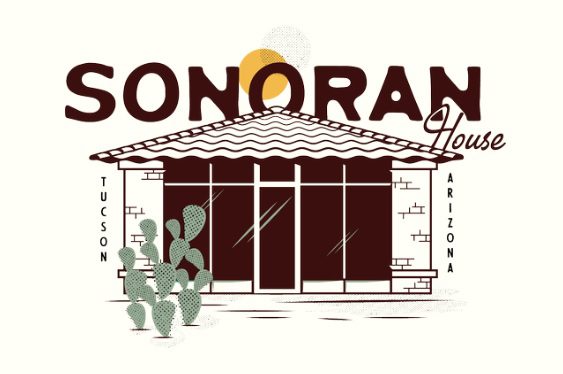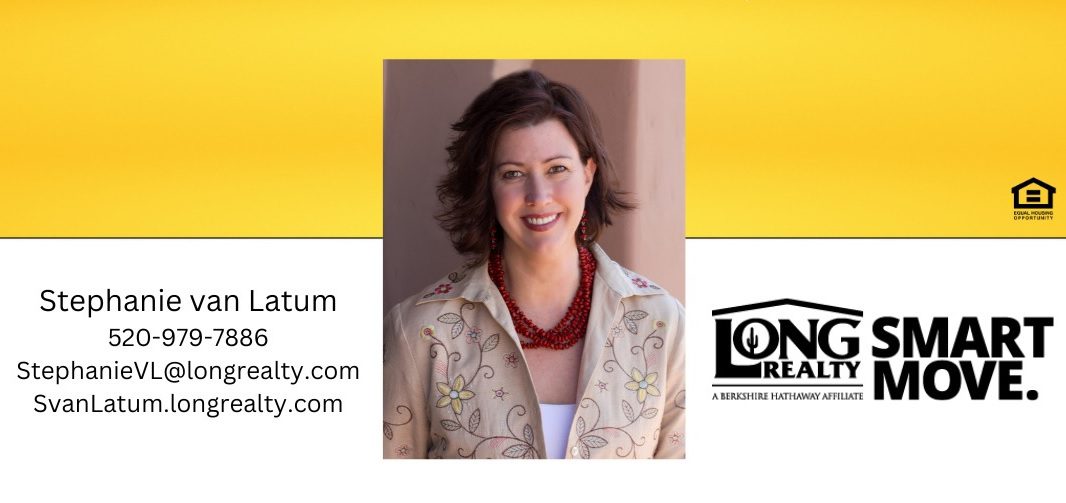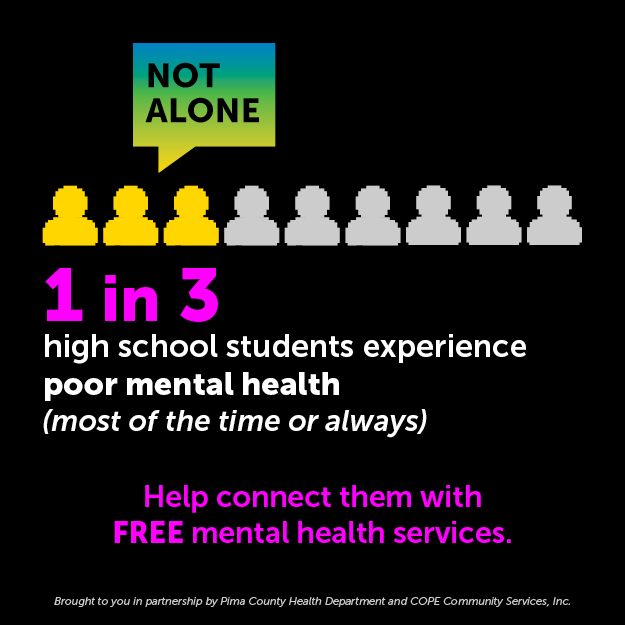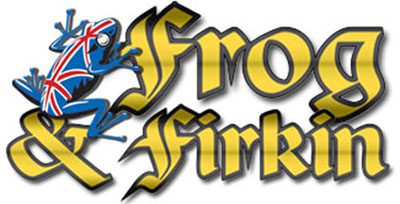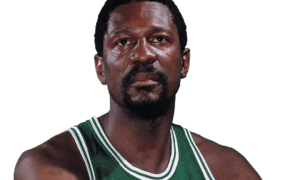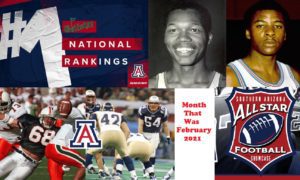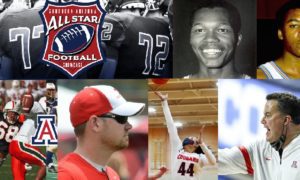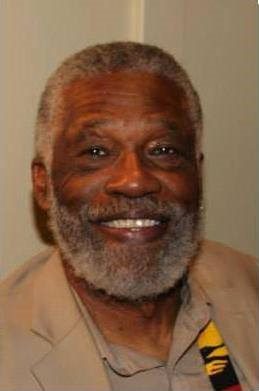
Ernie McCray: “
EDITOR’S NOTE: Former Tucson High School and University of Arizona basketball standout Ernie McCray is a legendary figure to Tucsonans and Wildcat fans. McCray, who holds the Wildcats’ scoring record with 46 points on Feb. 6, 1960, against Cal State-Los Angeles, is the first African-American basketball player to graduate from Arizona. McCray, who now resides in San Diego, earned degrees in physical education and elementary education at Arizona. He is a longtime educator, actor and activist in community affairs in the San Diego-area. He wrote a blog for now-defunct TucsonCitizen.com and has continued to offer his opinion and insight with AllSportsTucson.com. McCray also writes blogs for SanDiegoFreePress.org.
Recently, I received an email from a friend asking me if I would lead a conversation that would begin with a piece of art, next April, on issues important to Dunbar, the neighborhood in Tucson, where I spent the first 24 years of my life.
I couldn’t get back to her with the answer, “Yes,” quick enough. I can’t think of anything I’d rather do, in life, than take part in a rap session on behalf of a community that resides at the core of who I am as a human being.
I mean, I am Dunbar personified. I long ago bought into the neighborhood’s esprit de corps, “Be the Best” which was our motto at Dunbar School, the K-9 all-black school. Such thinking has pretty much been my life’s Golden Rule.
The conversation hinges on a National Endowment for the Humanities Community Conversation Grant coming through. But I’m envisioning it happening with or without a grant. It has to.
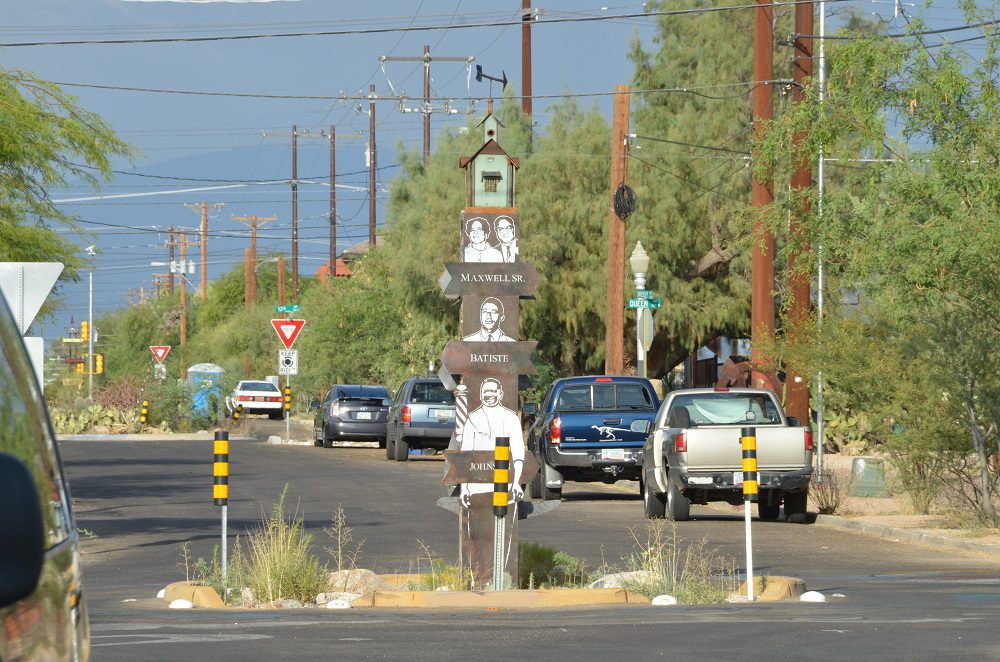
The Dunbar neighborhood in Tucson (Ernie McCray photo)
Anyway, lately I’ve been thinking about my old school days, how Dunbar and the development of my self-esteem go hand in hand.
I loved that institution of learning dearly. It offered a whole lot of what makes me feel good. I love to sing and we had an award winning choir where I could harmonize to my heart’s content. I’m a jock and I would do my thing on the football teams and basketball teams. I practically lived on the school’s stage, clowning around and emceeing and acting in a few skits and plays. I got my intellectual kicks representing the school on the local radio quiz show that allowed us black kids to make shreds of Jim Crow’s notion that we were intellectually slow.
Oh, Tucson let us know loudly and clearly that we were, to it, every bit, second class citizens. And that made for some not-so-peaches-and-cream scenarios at our school.
Feeling “less than” breeds a form of anger in a person that is always somewhere near the surface and, boy, was it misdirected, turned against each other, against ourselves, because I can recall moments when that fury got unleashed on the playground in mano a mano bone and teeth shattering fist fights that seemed to shake the very earth – started by any excuse for mayhem, a “Your mama’s so fat that when God said ‘Let there be light’ he had to axe her to move outta the way” or the copping of a “What you lookin’ at, fool!” attitude.
I suspect many a “pre-existing health condition” was born in that violent hand to hand combat.
But my old neighborhood was good place to be raised. Our parents were extremely hardworking. Our churches were soothing and inspiring for our souls.
There was a rec center and a pool nearby. We were a walking distance from Safeway and the main library and the YWCA and the YMCA and department stores and movie theatres and City Hall and the jail and banks and the U of A.
There were enough political activists in the community to keep us in the know with information about various issues or whom we might want to vote for.
We were above all, working class, but in my part of the neighborhood, alone, there were: a few musicians; a teacher or two; the Dunbar principal; a scattering of retired veterans of World War I; a building contractor; a barber; three owners of cafes; a very successful businessman who owned the café where the movie, “Alice Doesn’t Live Here Anymore,” was filmed along with a dry cleaning and laundry business; a watchmaker; a highly skilled mechanic; a “madame”; a very talented dancer.
So I can’t wait to go back home and revisit some of the aspects of those days, playing with thoughts that some of my old friends have already shared with me concerning: economic development and prosperity; senior resources; today’s generation; historical documentation via the university; narrowing the gap between the police and the black community; dealing with the re-segregation of the city’s schools; having community forums on an on going basis, involving as many neighborhoods as possible.
A dear friend of mine puts these ideas in simple terms: “Keeping, maintaining and rebuilding our heritage.”
I am definitely down with that. Our getting together has a “Be the Best” spirit written all over it.


